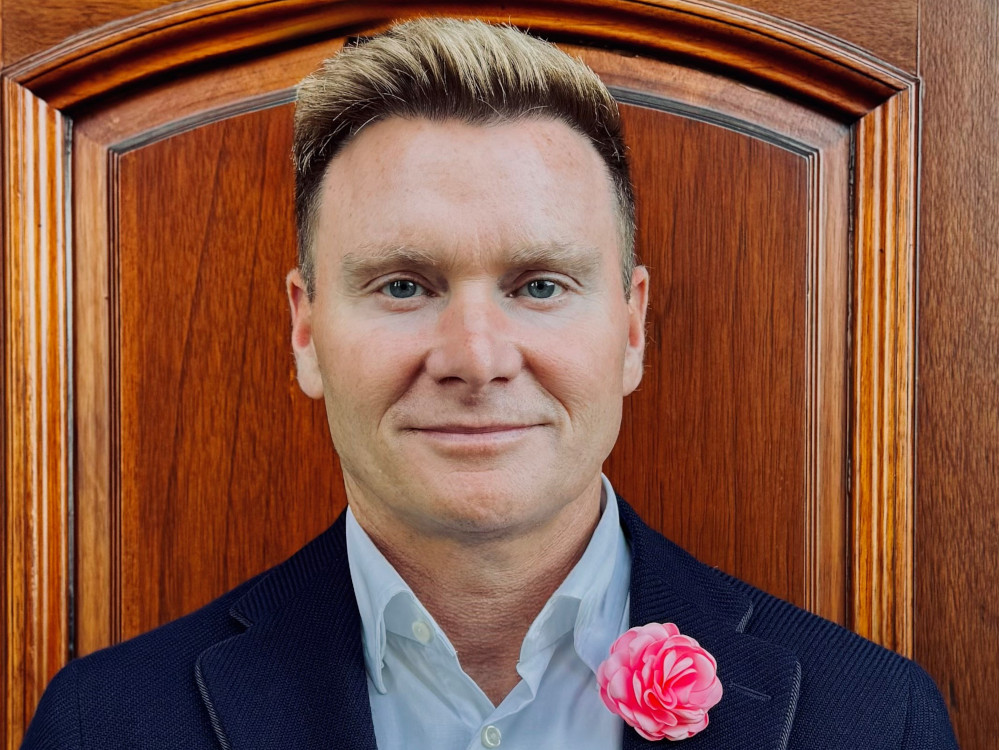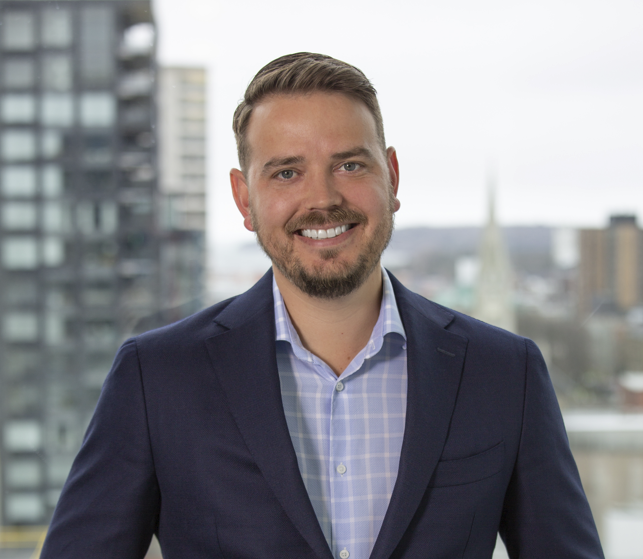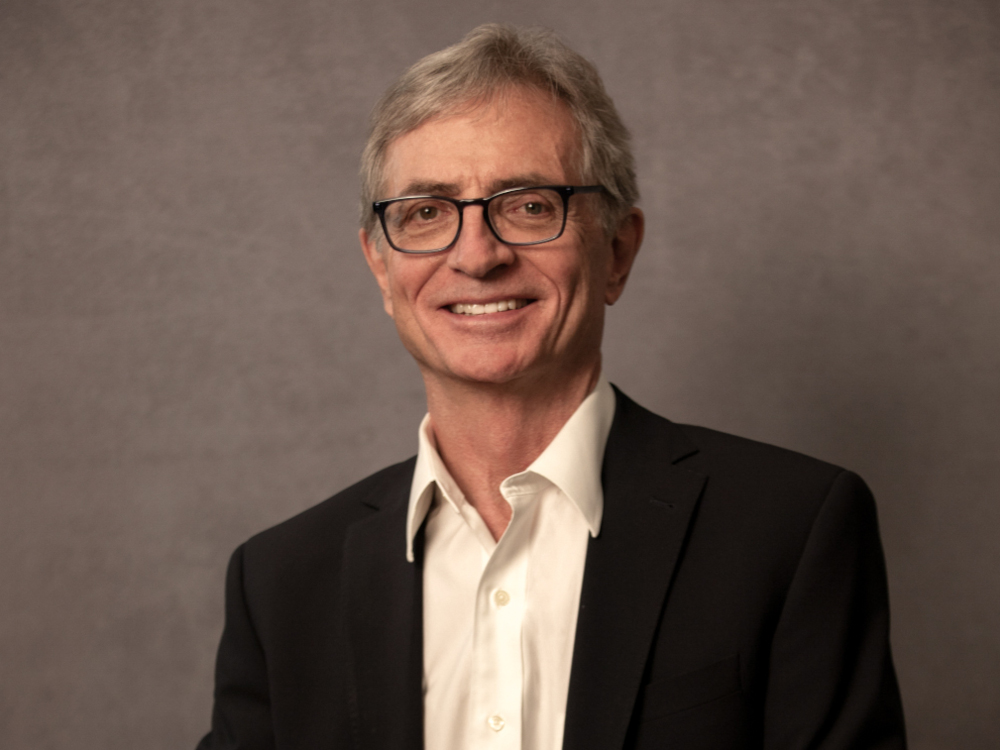A former CFL running back-turned-wealth management innovator, Éric Lapointe has been re-imagining how families grow, protect and pass on wealth for more than two decades.
After selling his first firm, CEOS Family Office, in 2022, he is now president and CEO of Heward Investment Management Inc., one of Montreal’s oldest third-generation asset-management firms with ties to the industry as far back as 1921. He’s also founder of INVICTA family office.
In the Canadian Football League, where he scored a career total of 31 touchdowns, he played for the Montreal Alouettes in the early 2000s and retired from the league after the 2006 season.
He recently talked with Canadian Family Offices about leadership, legacy and why empathy and connection are the most valuable currencies.
Éric, the last time we spoke was just before you sold CEOS Family Office. What has happened since then?
I sold early in 2022, coming out of COVID-19. I wanted to take some time off with my family—my daughters were 14 then—and enjoy life a little. But after a few months I realized retirement wasn’t for me. I wasn’t even 50, and I still had too much energy.
Then, out of the blue, I got a text from my mergers-and-acquisitions lawyer: ‘Do you know who Heward Investment Management is?’ he asked. Of course, I did. I’d actually tried to partner with them back in 2018 or 2019 because I liked their investment strategy.
One thing led to another. I started as a consultant in 2024, then bought back shares from a majority shareholder group from Barbados, and eventually became partner with James Heward, a family founder who is now chairman of the board. Today I’m CEO, president and a majority shareholder. So yes, I’m back building again.
You’ve moved from being a founder to leading a legacy firm. What is that transition like?
It’s fascinating. Heward is a third-generation family business, which is exactly the kind of client a multi-family office serves. Now I’m living it from the inside—working with the father, the brothers, the next generation.
You’ve started developing a new structure within Heward. What are you building?
We just launched an accounting division. The idea is to evolve Heward from a traditional investment manager into something broader—a place that can serve a family through every stage of life.
When I founded CEOS, we used to say, ‘Fewer clients, more services.’ I still believe that. Families today want an integrated team—accountants, notaries, tax specialists, portfolio managers—all collaborating daily. The challenge is getting professionals from different disciplines to work together when each industry has its own regulations and culture.
But COVID showed how fragile that collaboration can be. When everyone worked remotely at CEOS, the accountants became accountants again, the notaries went back to being notaries, the investment people did their thing. The magic ingredient—the chemistry—disappeared. Bringing that team chemistry together here is my top priority.
If you find yourself spending more time convincing than creating, something’s wrong.
How has your family-office experience influenced the way you lead now?
It taught me that alignment matters more than anything. You can have great people and the same vision, but if you’re not communicating every day, things break down. In business, just like football, you can’t win if the locker room is divided. When you play as a team, you create synergy. When you stop talking, you lose it.
My goal now is to rebuild that feeling, where everyone, from partners to assistants, understands the mission and feels part of it. It’s not about selling products or hours. It’s about helping families sleep better at night.
You’ve said publicly that you ‘sold too early.’ What did that experience at CEOS teach you?
If you find yourself spending more time convincing than creating, something’s wrong. You need the right people: dreamers who also execute, who believe in doing things differently. At CEOS we had that chemistry, but COVID changed everything. Two years apart was tough.

Still, I don’t regret it. Every win and loss teaches you something. I’ve learned that failure is part of growth. You just have to be comfortable with it.
Like any innovator, you have certainly experienced ups and downs. You once shared on LinkedIn that you had to let your own father go from the business. What was that like?
That was back in 2011, and, honestly, one of the hardest decisions of my life. I loved my dad, but the environment had become toxic—for him, for me, for the company. A lot of owners hire family for the wrong reasons. You think love will fix everything, but business and family are different games. In my case, if I wanted to move the business forward and keep my partners comfortable, I had to make the tough call.
Football prepared me for that. In professional sports you learn that even good teammates sometimes have to be released for the team to win.
What keeps you motivated to keep building?
Probably the same thing that drove me in football: the next game. I won two Grey Cups, lost three others. Every season taught me something different. In business it’s the same. You win, you lose, you learn, and you keep moving forward.
What keeps me motivated is the idea of legacy: Can I build something that lasts beyond me? A second generation, a third generation? Can we adapt and innovate so that our clients’ children still feel connected 20 years from now? That’s the real championship.
The challenge is getting professionals from different disciplines to work together when each industry has its own regulations and culture.
You often draw parallels between football and business. What lessons still guide you?
Football taught me that talent isn’t enough. You need alignment, communication and trust. A great team practices together every day. You can’t do that over Zoom. It’s the same in business. You can have the best strategies, but without chemistry you won’t win. Whether it’s a company or a family office, the magic happens when people truly work together.
Speaking of that human touch, artificial intelligence and technology are transforming finance. How are you thinking about the future?
Technology is amazing, but it also worries me. In Quebec, even judges are beta-testing AI tools to help with research. So what happens to paralegals? What happens to the next generation of professionals?
I’m not anti-AI. I use it. But we can’t lose the human side. The ability to connect, to really talk, is becoming a superpower. Younger people text instead of calling. They avoid difficult conversations. But in this business, relationships are everything. AI can analyze data, but it can’t make someone feel understood.
So, what gives you hope about the next generation?
I recently mentored a young intern from Nova Scotia.He reminded me that curiosity and charisma still exist. He was only 20, but he had that spark—the ability to connect with people. That’s what I tell every young professional: Be human first. Learn the tools, yes, but never forget to look someone in the eye and listen. That skill will outlast any technology.
Being able to create strong relationships is clearly almost a superpower.
What’s your best advice for young entrepreneurs or wealth managers who want to build something that lasts?
Learn fast. Be human. That’s it.
We’ve all been told to specialize, to become accountants or lawyers or investment experts, but in the future, the people who thrive will be the ones who can communicate and empathize.
The idea is to evolve Heward from a traditional investment manager into something broader—a place that can serve a family through every stage of life.
Get out of your comfort zone. Meet people face-to-face. Ask questions. Build your network early. And don’t just talk to mentors about success, ask them about the mistakes they made. You’ll learn more from those. You should not be afraid of failing.
I’ve spoken with many clients of multi-family offices who say that beyond financial results, what matters most is feeling truly ‘taken care of.’ What does that mean to you?
That human element is everything. I remember one meeting that I intentionally didn’t attend because I wanted to see what would happen without me there. An entrepreneur came to our office for a discovery meeting, and I surrounded him with a two-generation team positioned exactly where I wanted them at the table. He didn’t know what to expect.
Afterward, he called me from his car. He actually had to pull over. He said, ‘It’s the first time since my dad passed away that I feel like I’m not the only one with my hands on the wheel.’
In that one meeting, he saw his family’s future being taken care of, and he said he’d never felt that before. Coming from someone so successful and experienced, who has had advice from the best professionals in the country, that was probably the best compliment I’ve ever received.
For me, that’s what this work is about. You’re not thinking about just today or this meeting. You’re thinking about what the client will experience 10 or 20 years from now. If you can build something that gives a family that sense of trust and continuity, it’s an amazing feeling.
After all these experiences with clients and changes in your career, how do you define success today?
For me, success is simple: doing meaningful work with good people.
I don’t want to chase numbers or titles anymore. I want to build relationships, create impact and keep learning. The day I stop evolving is the day I retire for real. And I don’t think that day will ever come.
This interview has been edited for length and clarity.
Kira Vermond is a veteran personal finance journalist with more than 20 years of experience writing for Canadian investors and advisors. A longtime contributor to The Globe and Mail, has also written for MoneySense, CBC and Forum Magazine, and is the former money columnist for Chatelaine magazine. Vermond is the author of multiple books including The Secret Life of Money: A Kid’s Guide to Cash. She lives in Guelph, Ont.
The Canadian Family Offices newsletter comes out on Sundays and Wednesdays. If you are interested in stories about Canadian enterprising families, family offices and the professionals who work with them, sign up for our free newsletter here.
Please visit here to see information about our standards of journalistic excellence.




